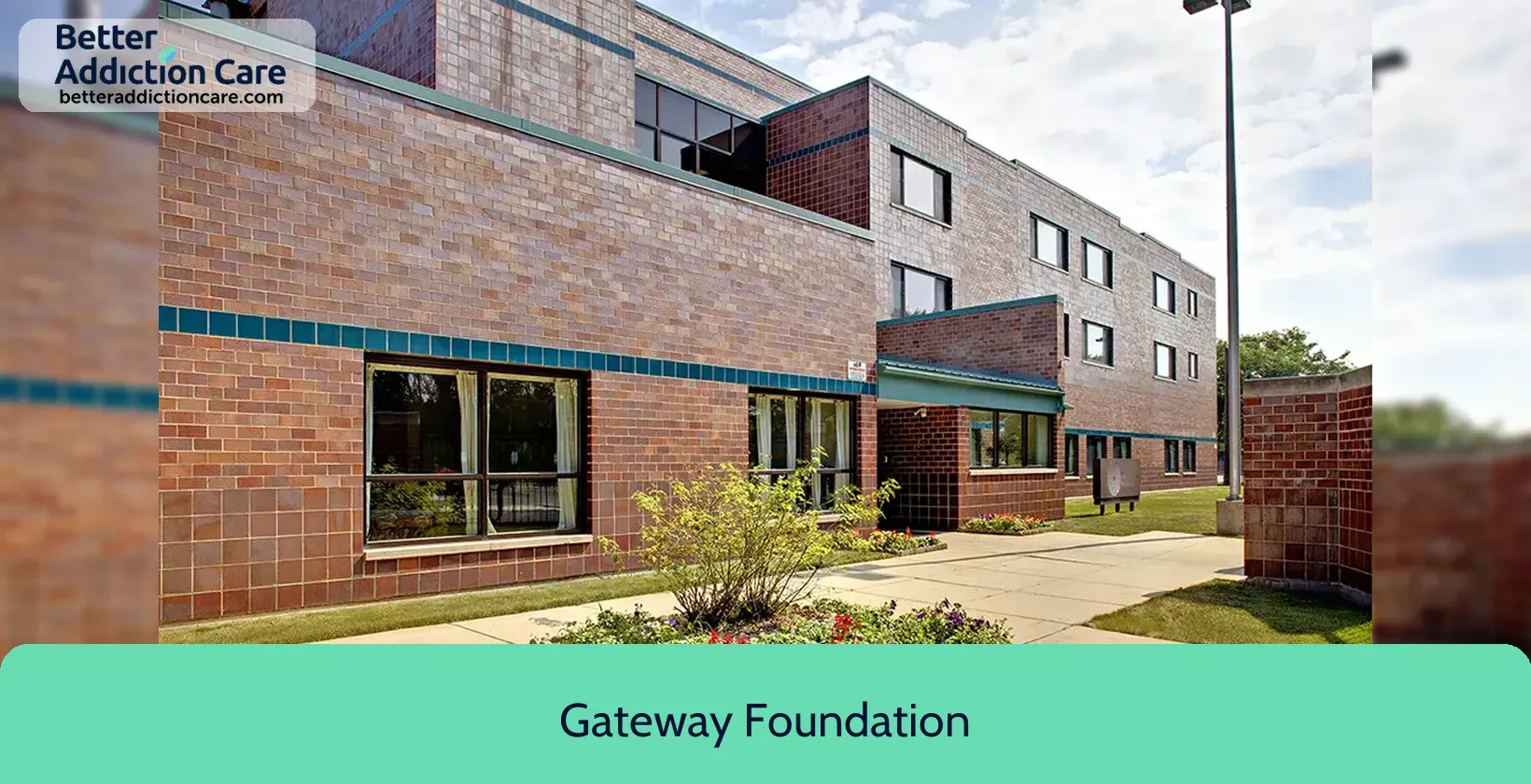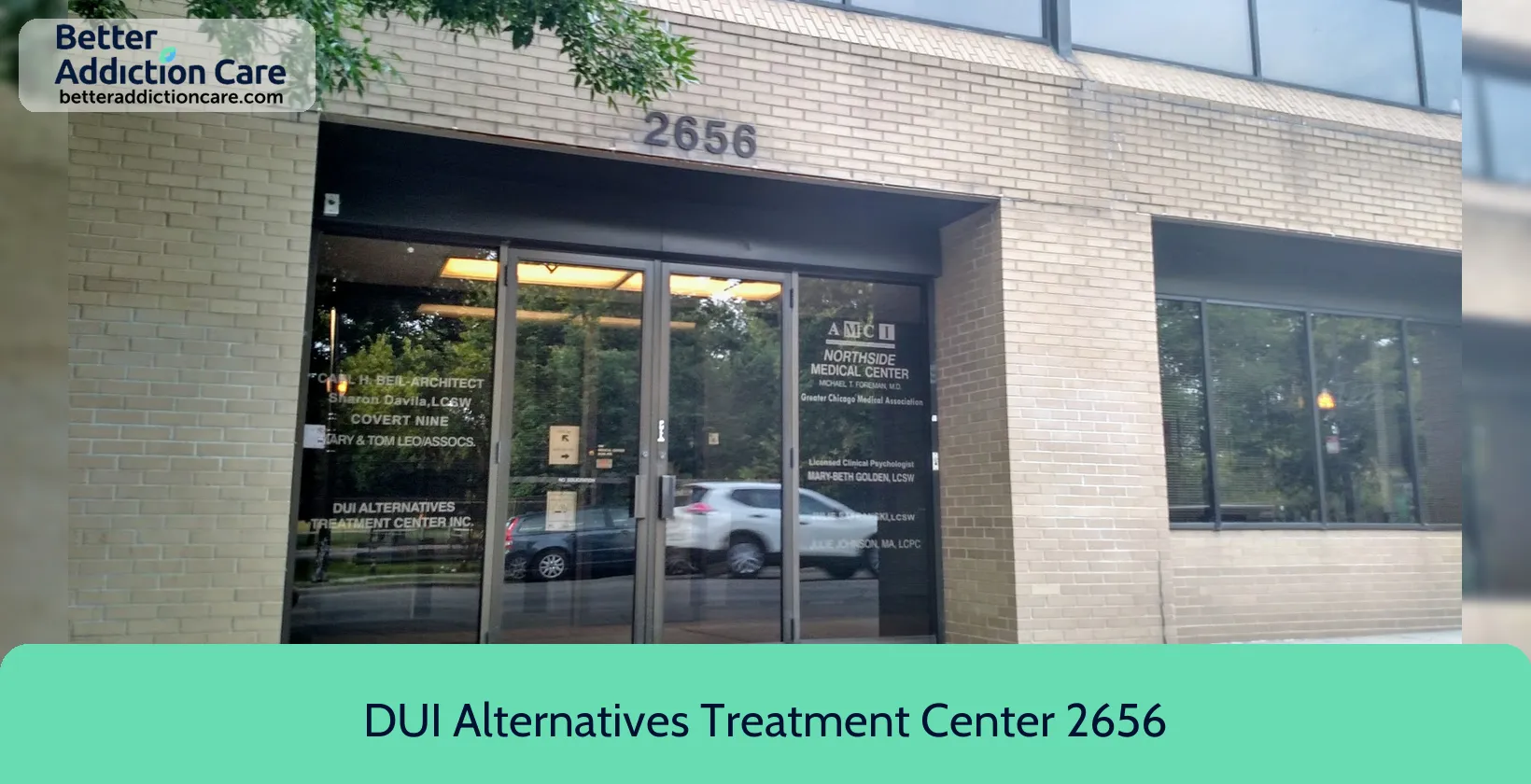DUI Alternatives Treatment Center 2656 West Montrose Avenue
Overview
DUI Alternatives Treatment Center 2656 West Montrose Avenue is a substance abuse treatment center for people seeking treatment near Cook County. As part of their treatment modalities for recovery, DUI Alternatives Treatment Center 2656 West Montrose Avenue provides substance use disorder counseling, group counseling, and intervention services during treatment. DUI Alternatives Treatment Center 2656 West Montrose Avenue is located in Chicago, Illinois, accepting cash or self-payment for treatment.
DUI Alternatives Treatment Center 2656 West Montrose Avenue at a Glance
Payment Options
- Cash or self-payment
- Sliding fee scale (fee is based on income and other factors)
Assessments
- Comprehensive substance use assessment
- Interim services for clients
- Screening for substance use
Age Groups
- Young adults
- Adults
- Seniors
Ancillary Services
- Specially designed program for DUI/DWI clients
Highlights About DUI Alternatives Treatment Center 2656 West Montrose Avenue
6.59/10
With an overall rating of 6.59/10, this facility has following balanced range of services. Alcohol Rehabilitation: 8.00/10, Drug Rehab and Detox: 6.00/10, Insurance and Payments: 6.00/10, Treatment Options: 6.36/10.-
Alcohol Rehabilitation 8.00
-
Treatment Options 6.36
-
Drug Rehab and Detox 6.00
-
Insurance and Payments 6.00
Treatment At DUI Alternatives Treatment Center 2656 West Montrose Avenue
Treatment Conditions
- Alcoholism
- Substance use treatment
Care Levels
- Outpatient
- Regular outpatient treatment
- Aftercare
Treatment Modalities
- Substance use disorder counseling
- Group counseling
- Intervention Services
- Individual psychotherapy
Ancillary Services
Languages
- Spanish
Additional Services
- Pharmacotherapies administered during treatment
- Discharge Planning
- Breathalyzer or blood alcohol testing
Get Help Now
Common Questions About DUI Alternatives Treatment Center 2656 West Montrose Avenue
Contact Information
Other Facilities in Chicago

6.66

7.18

7.01

7.12

7.49

6.79

7.41

7.00
DISCLAIMER: The facility name, logo and brand are the property and registered trademarks of Gateway Foundation, and are being used for identification and informational purposes only. Use of these names, logos and brands shall not imply endorsement. BetterAddictionCare.com is not affiliated with or sponsored by Gateway Foundation.

